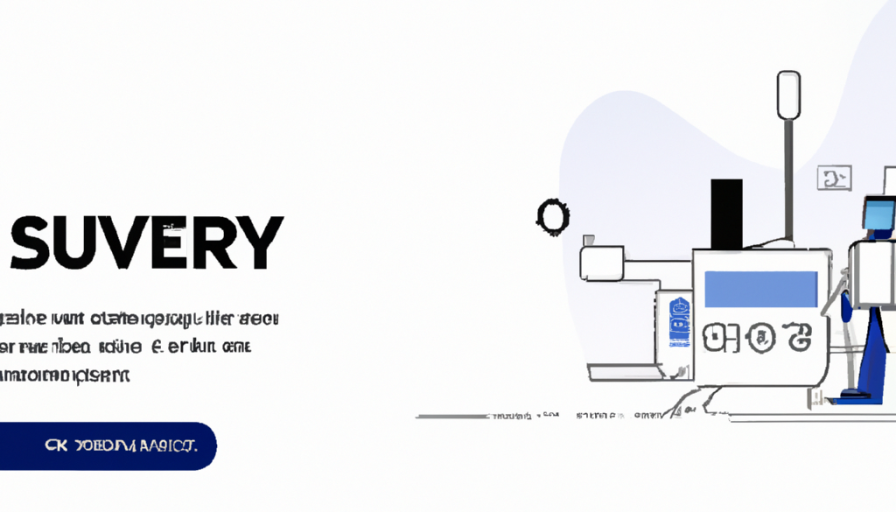AI Business Automation Trends
Artificial Intelligence (AI) is rapidly transforming various industries, and business automation is no exception. With advancements in technology, businesses are increasingly adopting AI solutions to streamline their processes, improve efficiency, and gain a competitive edge. In this article, we will explore the latest trends in AI business automation and how they are revolutionizing different sectors.
1. Intelligent Chatbots and Virtual Assistants
Intelligent chatbots and virtual assistants have become essential tools for businesses to enhance customer service and support. These AI-powered systems can interact with customers, answer queries, provide information, and even process transactions. With natural language processing capabilities, chatbots can accurately understand and respond to user requests, improving efficiency and reducing the need for human intervention in routine tasks.
2. Robotic Process Automation (RPA)
Robotic Process Automation (RPA) is gaining traction across industries as businesses seek to automate repetitive and rule-based tasks. RPA uses software robots to perform tasks that were previously done by human employees, such as data entry, invoice processing, and report generation. By utilizing AI algorithms, RPA systems can learn from past actions and make intelligent decisions, leading to increased productivity and reduced errors.
3. Predictive Analytics
Predictive analytics leverages AI algorithms to analyze vast amounts of data and make accurate predictions about future outcomes. Businesses can use predictive analytics to forecast customer behavior, market trends, and optimize resource allocation. By identifying patterns and trends, companies can make data-driven decisions that improve efficiency, minimize risks, and capitalize on opportunities.
4. Intelligent Document Processing
Dealing with large volumes of documents is a common challenge for many businesses. AI-powered intelligent document processing solutions can automate the extraction, classification, and analysis of data from various documents, such as invoices, contracts, and forms. By using machine learning techniques, these systems can accurately extract relevant information, reducing manual effort and improving data accuracy.
5. Personalized Marketing and Recommendations
AI enables businesses to deliver personalized marketing campaigns and recommendations based on individual customer preferences and behavior. By analyzing vast amounts of customer data, AI algorithms can identify patterns, interests, and buying habits to create targeted advertising and recommend products or services that align with each customer’s unique needs. This level of personalization enhances customer engagement, improves conversion rates, and ultimately drives business growth.
6. Supply Chain Optimization
AI-powered automation can revolutionize supply chain management by optimizing inventory management, demand forecasting, and logistics operations. Intelligent algorithms can analyze real-time data, historical trends, and external factors to predict demand, optimize inventory levels, and streamline logistics processes. By minimizing stockouts, reducing excess inventory, and improving delivery times, businesses can achieve cost savings, enhance customer satisfaction, and gain a competitive advantage.
7. Cybersecurity and Fraud Detection
As the volume and complexity of cyber threats increase, businesses are turning to AI for enhanced cybersecurity and fraud detection measures. AI algorithms can monitor network traffic, detect anomalies, and identify potential security breaches in real-time. By analyzing patterns and behaviors, AI systems can proactively identify and mitigate risks, protecting sensitive data and preventing fraud.
8. Voice and Image Recognition
Advancements in AI have led to significant improvements in voice and image recognition technologies. Voice assistants like Siri, Alexa, and Google Assistant use natural language processing algorithms to understand and respond to spoken commands. Image recognition algorithms can accurately identify objects, faces, and even emotions, enabling businesses to automate tasks like facial recognition for access control or inventory management.
9. AI-powered Analytics
AI-powered analytics tools enable businesses to gain valuable insights from vast amounts of data quickly and accurately. These tools use machine learning algorithms to analyze data, identify trends, and generate actionable insights. By automating the data analysis process, businesses can save time and resources, make data-driven decisions, and uncover hidden opportunities for growth and improvement.
In conclusion, AI business automation trends are revolutionizing industries by automating routine tasks, enhancing customer experiences, optimizing operations, and improving decision-making processes. As AI continues to evolve, businesses that embrace these trends will gain a competitive advantage, drive efficiencies, and unlock new opportunities for growth in the digital age.
Note: This article is written in markdown format.
*The article is written in English as per the given instructions.


